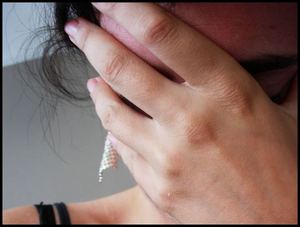- Free Initial Consultation: (954) 761-3641 Tap Here To Call Us
Siruta v. Siruta – Husband Sues Wife for Child Car Accident Death
It is not highly unusual for passengers in a crash or their survivors to sue drivers following an accident, even when they are family members or close friends. The goal is not malice, but rather compensation for medical bills, lost wages and other costs, which are often paid by insurance companies rather than the individual directly.

Also, in order to collect any uninsured/underinsured motorist coverage the passenger may have had, it’s imperative to exhaust all other legal remedies for compensation, and so claims against a negligent driver are necessary.
But the case of Siruta v. Siruta, in which a passenger in a wreck sued the driver for the wrongful death of his son, also a passenger, is unusual for a number of reasons. The legally perplexing case was recently before the Kansas Supreme Court. more Here, a couple was on their way home from a cross-state youth wrestling tournament with their 7-year-old son and his young teammate. It was a long drive, and the mother and father had traded driving duties on-and-off throughout the 330-mile trek. At the time of the wreck, though, the mother was behind the wheel while everyone else in the car was sleeping. It would later be alleged the mother was either extremely drowsy or fell asleep at the wheel. Either way, she crossed the center line, over-corrected and the vehicle rolled over, resulting in the tragic death of the couple’s young son.
Then, in an unusual move, husband sued his wife for wrongful death of the child. The two remain married. The case is very complex because, for one thing, wife is not only defendant tortfeasor but also an “heir at law” to her child’s estate. In wrongful death cases, an “heir at law” would benefit from any civil action taken by the estate, and thus, she would essentially be partially benefiting from a finding of her own negligence. Further complicating matters is the assertion that plaintiff husband shared some of the blame due to their joint driving decisions.
A jury later determined both defendant and plaintiff shared 50 percent of fault, which essentially was construed as a favorable finding for the defendant mother. The appeals court unanimously affirmed district court’s rulings, but the Kansas Supreme Court reversed and remanded for further proceedings, which will likely mean a new trial.
At issue on appeal were several points. First, mother argued father wasn’t legally entitled to bring a wrongful death action against her because the litigation is on behalf of all decedent’s heirs at law, of which she is one, and she can’t be allowed to benefit from her own negligence. Secondly, she asserted she was entitled to a pretrial judgment as a matter of law because there was not enough evidence to support her liability. Meanwhile father argued district court erred in allowing jury to consider comparative negligence in the case when he was merely a passenger, while the defendant mother was the one driving at the time of the crash. Mother also alleges error in trial court’s decision to bar her from defenses of parental and interspousal immunity.
The state high court addressed these issues one-by-one. First, it found the wrongful death action wasn’t barred by mother’s heir at law status. Just because mother is an heir does not mean she is also a plaintiff in the case. Further, the court found the potential for mother to recover damages from herself shouldn’t bar father’s right to bring the lawsuit.Ultimately, it would be up to the judge to decide, where husband successful, not to award any damages to mother as an heir, as that is a discretionary function of the court.
The court further found there was enough evidence to overcome summary judgment, and that trial court improperly applied the wrong comparative negligence standard to the father in this case. As a passenger, he did not owe the same duty of care to his child as the driver of the vehicle and this was not a situation in which a special relationship existed between driver and passenger in which greater duty for driving responsibility was imbued onto him as a passenger.
Because of this wrongful standard, the case has been remanded back to the lower court for another trial.
Cases like this don’t come up all that much, which is why courts in other states will likely use this decision as a guide should they encounter a similar scenario.
Call Fort Lauderdale Injury Attorney Richard Ansara at (954) 761-4011. Serving Broward, Miami-Dade and Palm Beach counties.
Additional Resources: Siruta v. Siruta, May 1, 2015, Kansas Supreme Court More Blog Entries: Jones v. Alayon – Seat Belt Defense in Florida Car Accident Lawsuit, April 26, 2015, Fort Lauderdale Auto Accident Lawyer Blog













